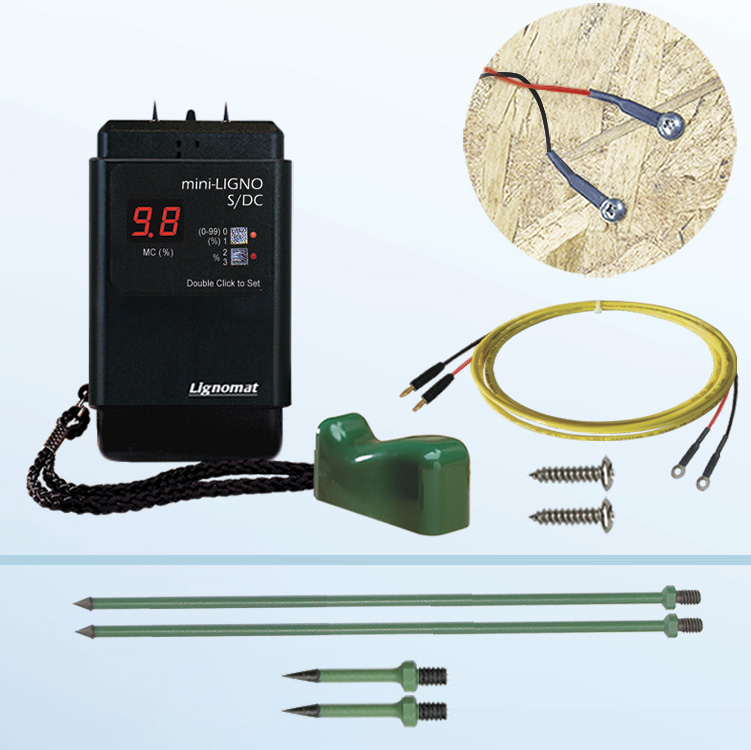The Ultimate Guide to Picking the Right Moisture Meter for Your Needs
The Ultimate Guide to Picking the Right Moisture Meter for Your Needs
Blog Article
The Ultimate Guide to Wetness Meters: A Comprehensive Overview and Just How They Can Conserve You Money
Wetness meters offer as indispensable devices in identifying and keeping track of moisture content in products, aiding in stopping costly problems and making sure the top quality of items. Recognizing the subtleties of different types of moisture meters, their applications, and the potential cost-saving benefits they provide can be a game-changer for businesses and specialists alike.
Kinds of Wetness Meters
One usual kind is the pin-type wetness meter, which gauges the electric resistance in between 2 pins put right into a material. Pinless dampness meters, on the other hand, use electro-magnetic sensing unit plates to check a larger location without causing damage to the product's surface.

Infrared moisture meters measure the thermal homes of a material to determine its dampness material non-invasively, making them valuable for applications where pin or pinless meters may not be ideal. Comprehending the various types of wetness meters readily available can assist industries select the most appropriate device for their specific wetness measurement demands.

Advantages of Making Use Of Wetness Meters
Dampness meters use very useful benefits in properly evaluating and monitoring dampness levels in varied materials and atmospheres. One of the primary advantages of using dampness meters is the prevention of prospective damage caused by excess moisture.
Furthermore, utilizing moisture meters can cause boosted energy performance. By determining locations with high dampness levels, such as leakages or bad insulation, changes can be made to boost power conservation and decrease utility costs. In agricultural setups, moisture meters play an important role in enhancing crop yields by making it possible for farmers to monitor dirt moisture degrees and make informed irrigation decisions. Generally, the advantages of utilizing moisture meters cover throughout different sectors, giving economical options and promoting far better quality assurance practices.
How to Pick the Right Wetness Meter
When selecting a moisture meter, it's crucial to guarantee that the meter is appropriate for the specific product you will be testing. Different materials have varying electric homes that can impact wetness analyses, so picking a meter designed for your product is important for precise results. By very carefully assessing these aspects, you can choose a moisture meter that fulfills your requirements and offers accurate wetness dimensions for your jobs.
Correct Techniques for Wetness Meter Use

Cost Financial Savings Via Wetness Meter Applications
How can the critical application of moisture meters bring about significant cost financial savings across various markets? Moisture meters play an essential duty in price financial savings by avoiding prospective damages and making certain quality assurance in different industries. In the farming sector, moisture meters help in determining the ideal time for gathering crops, stopping excess or over-drying wetness that can impact the end product's quality. This accurate monitoring aids farmers avoid unneeded losses and optimize their yield.
Similarly, in construction, dampness meters help protect against costly damages read this article by spotting moisture levels in building materials, such as timber or concrete, which can cause structural concerns if not attended to immediately. By identifying trouble areas beforehand, service providers can take restorative steps to prevent considerable fixings or substitutes, inevitably saving money and time.
Moreover, in the food processing industry, dampness meters are necessary for keeping an eye on product top quality and making certain compliance with safety guidelines. By accurately measuring dampness web content in food, producers can avoid spoilage, preserve freshness, and lower waste, causing substantial price savings. Generally, the tactical application of wetness meters is a useful financial investment that can result in considerable expense reductions and boosted performance across various industries.
Verdict
In final thought, moisture meters are useful devices for discovering and measuring wetness degrees in different materials. By using the best wetness meter and complying with correct techniques, users can successfully prevent pricey damages triggered by excess dampness. Buying a top quality wetness meter can cause substantial expense savings in the future by recognizing possible problems at an early stage and allowing punctual removal. Ultimately, dampness meters are essential instruments for keeping the honesty and longevity of products and structures.
Dampness meters offer as indispensable tools in spotting and monitoring moisture web content in materials, helping in stopping costly problems and ensuring the top quality of items. Infrared wetness meters determine the thermal have a peek at this website properties of a material to determine its moisture web content non-invasively, making them valuable for applications where pin or pinless meters might not be suitable.Moisture meters use vital advantages in accurately analyzing and checking wetness levels in diverse products and environments. In agricultural setups, dampness meters play a critical function in maximizing crop returns by enabling farmers to keep track of soil moisture degrees and make educated irrigation decisions.In conclusion, wetness meters are useful devices for spotting and determining moisture levels in numerous materials.
Report this page